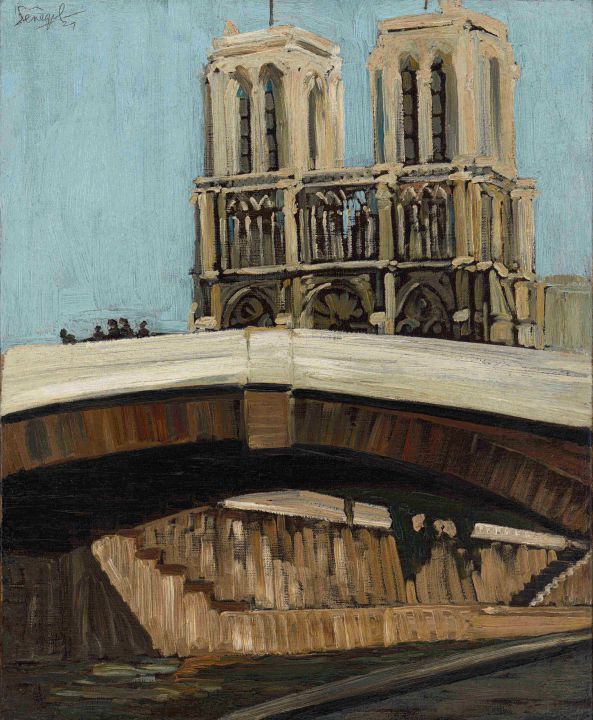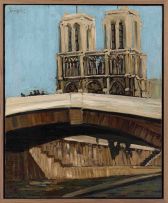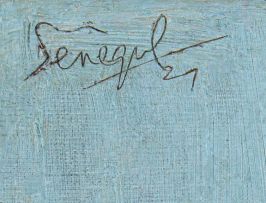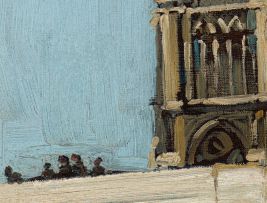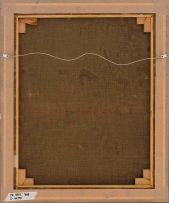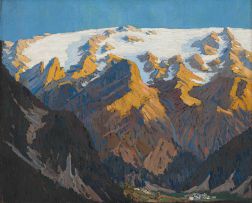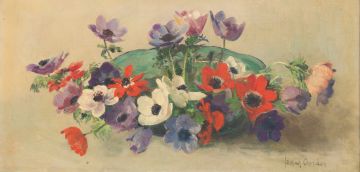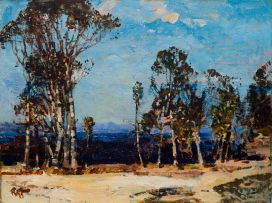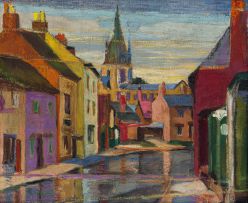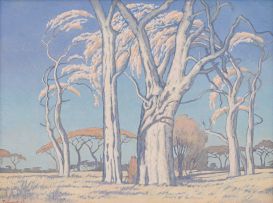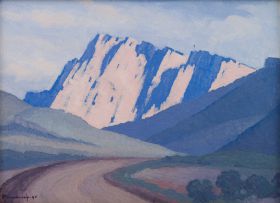Modern, Post-War and Contemporary Art and South African Fine Wine
Live Virtual Auction, 26 - 28 July 2020
Tuesday Day Sale
Incl. Buyer's Premium & VAT
About this Item
signed and dated 21
Notes
Clément Sénèque went to Paris in 1921 to continue his architectural studies, first begun in Durban, and his training and experience in this field translate visibly into his art. His view of the cathedral of Notre Dame in Paris (Strauss & Co, 27 July 2020, lot 333) brings to mind the series of works painted by Claude Monet in the 1890s of a similar Gothic edifice, the façade of Rouen Cathedral. But whereas Monet's works are all about light, colour and atmosphere and how they change moment by moment, Sénèque's focus is volume and mass. Whether it was the Parisian urban landscape or the massive, craggy bulk of the French Alps (Strauss & Co, 27 July 2020, lot 332) where the artist and his new wife Marie-Thérèse honeymooned 1923, Sénèque showed the same interest in building the picture plane using a reduced palette of greys, browns, blue and white. His sober approach reflected the 'return to order' that prevailed in the arts in Europe in the 1920s and the turning away from the disruptive and experimental styles that had characterised the decade leading up to WWI. As Brendan Bell notes, it is 'the interest in the underlying architectonic forms of nature and man-made objects and the extraction of these essential forms for the purpose of pictorial structure which sets Sénèque's art apart from the French Impressionsists'1 and the other styles that preceded him.
1. Brendan Bell (1988) Clément Sénèque: Life and Work, unpublished MA dissertation, University of Pietermaritzburg, page 2.
